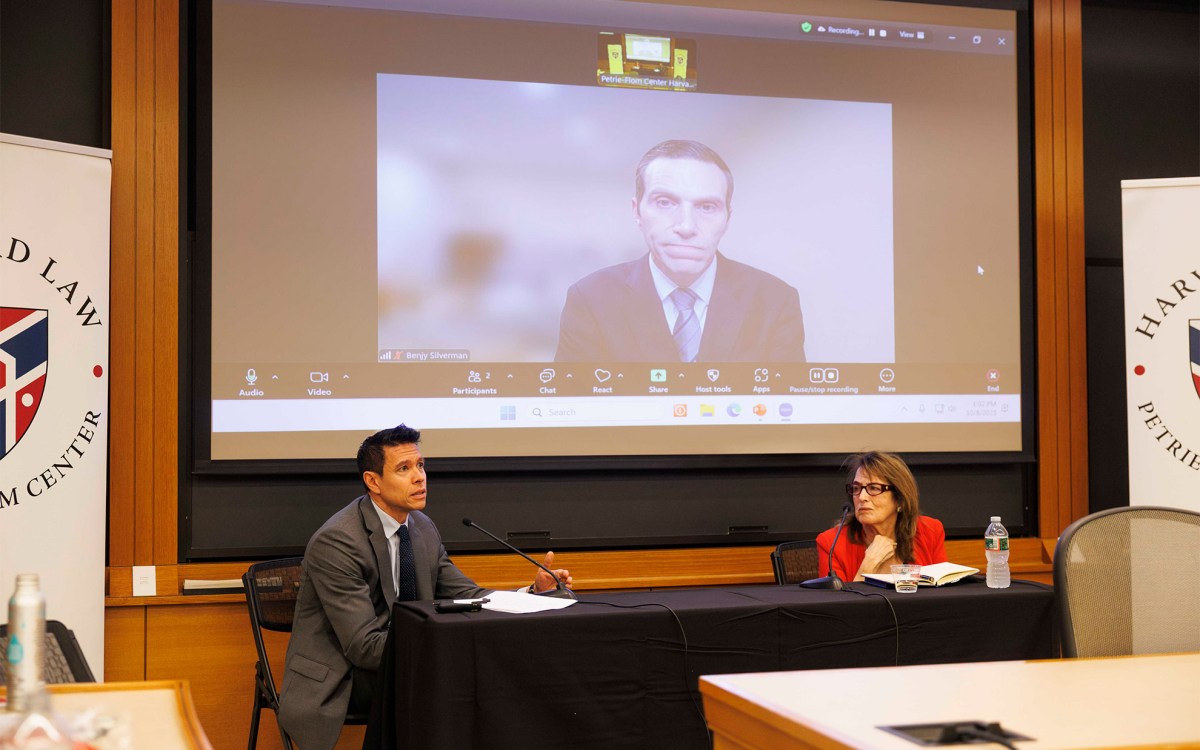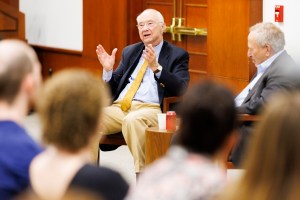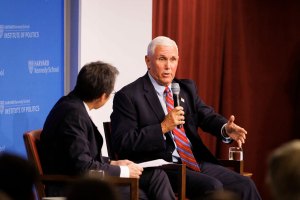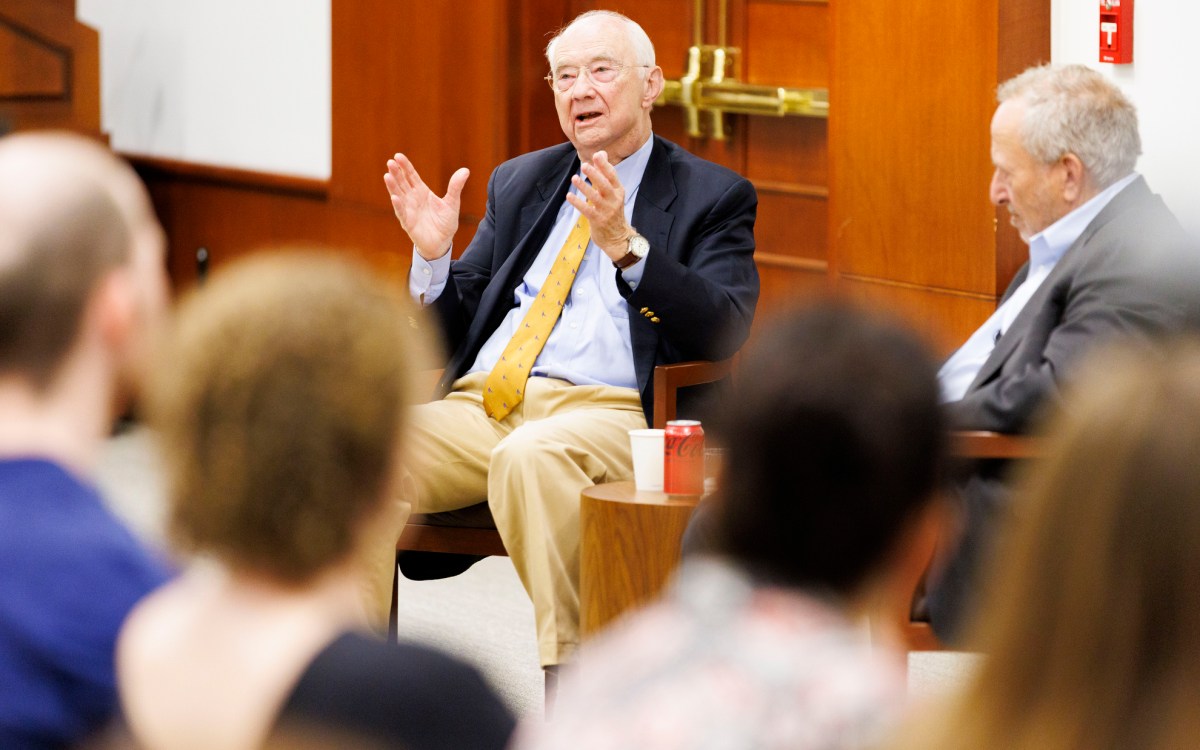Obama, Giuliani lead packs in race for president among 18- to 24-year-olds
A new national poll by the Institute of Politics (IOP) at the John F. Kennedy School of Government finds former New York City Mayor Rudy Giuliani and U.S. Sen. Barack Obama as 18- to 24-year-olds’ first choices for president in 2008. Nearly six in 10 young people (59 percent) believe the country is “on the wrong track” while only 13 percent believe the country is headed in the “right direction.” On issues facing the nation, 50 percent of young people today say that either “Iraq,” “the war,” the “War on Terror,” or “domestic security” is the most concerning national issue, with no other issue registering higher than 6 percent.
The online survey of 2,923 18- to 24-year-old U.S. citizens, conducted between March 8 and March 26, finds:
Young Democrats favor Obama for president in 2008, with gender, race, and the college vote playing key roles. Although U.S. Sen. Hilary Clinton leads Obama and former U.S. Sen. John Edwards in most national polls, more than one-third of likely 18- to 24-year-old Democratic voters say Obama would be their first choice in 2008, followed by Clinton (29 percent) and Edwards (9 percent). On college campuses, Obama enjoys an even greater lead over Clinton (41 percent to 24 percent), but his lead is reduced to only three percentage points (33 percent to 30 percent) among 18- to 24-year-old Democrats not enrolled in a four-year college. While Obama leads Clinton by over 20 percentage points among young Democratic men (43 percent to 20 percent), Clinton leads Obama by six points (35 percent to 29 percent) among young Democratic women. More than half of young Democratic African Americans favor Obama over Clinton (53 percent to 23 percent), while half of young Democratic Hispanics favor Clinton over Obama (50 percent to 21 percent).
Giuliani leads challengers among young Republicans, but the college vote cuts into his lead. Giuliani not only leads Sen. John McCain and former Massachusetts Gov. Mitt Romney in most national polls (34 percent, 22 percent, 13 percent — Gallup, March 23-25), the mayor also leads among the Republican youth electorate. More than three in 10 likely 18- to 24-year-old Republican voters said their first choice for president in 2008 would be Giuliani (31 percent), a number almost double that favoring McCain (18 percent) and more than three times that naming former Romney (8 percent) as their first choice. However, while Giuliani’s percentage-point lead over McCain grows slightly among noncollege youth, his double-digit advantage over McCain narrows only to eight percentage points on college campuses (non-college: Giuliani 31 percent, McCain 16 percent; college: Giuliani 29 percent, McCain 21 percent).
Fifty percent of young people say Iraq, war, and domestic security are overwhelmingly their number one concern today. Asked in an open-ended question for the “national issue” that concerns them most, half (50 percent) of 18- to-24-year-olds report that “Iraq” (29 percent), “the war” (14 percent), the “War on Terror” (4 percent) or “domestic security” (3 percent) concerns them the most. No other single issue registered more than 6 percent of the vote.
Almost one in five young people say the situation in Darfur, Sudan, should be the next foreign policy priority for President Bush. Nearly one in four young people feel the next foreign policy priority for Bush should be “stabilizing Iraq” (24 percent), but “dealing with the genocide in Darfur, Sudan” is a close second (17 percent).
Young people support a more multilateral U.S. foreign affairs stance. Nearly three out of four (74 percent) 18- to 24-year-olds believe the United States should let other countries and the United Nations take the lead in solving international crises and conflicts.
When asked, “What should the U.S. do now?” regarding the situation in Iraq, nearly six in 10 (58 percent) 18- to 24-year-olds favor either decreasing the number of troops (29 percent) or removing all U.S. troops (29 percent) from the country. Two in 10 young people say the U.S. should either increase the number (11 percent) or maintain current troop levels (9 percent) in Iraq.
Harvard students designed the poll, in consultation with Kennedy School lecturer David King and IOP Polling Director John Della Volpe, whose firm SocialSphere commissioned Harris Interactive to conduct the survey. Complete results and past surveys are available online at http://www.iop.harvard.edu.
The Harvard Institute of Politics’ 12th Biannual Youth Survey on Politics and Public Service was conducted online by Harris Interactive among 1,440 U.S. citizens ages 18 to 24 years old enrolled in four-year colleges and universities, and 1,483 U.S. citizens ages 18-24 not enrolled in four-year colleges and universities. The study was fielded between March 8 and March 26. Figures for age, sex, race/ethnicity, education, household income and region for these populations were weighted where necessary to bring them in line with their actual proportions in the population. Propensity score weighting was also used to adjust for respondents’ propensity to be online.
With pure probability samples, with 100 percent response rates, it is possible to calculate the probability that the sampling error (but not other sources of error) is not greater than some number. With a pure probability sample of 2,923 one could say with a 95 percent probability that the overall results have a sampling error of +/-3 percentage points. Sampling error for data based on subsamples would be higher and would vary. However, that does not take other sources of error into account. This online survey is not based on a probability sample and therefore no theoretical sampling error can be calculated.




